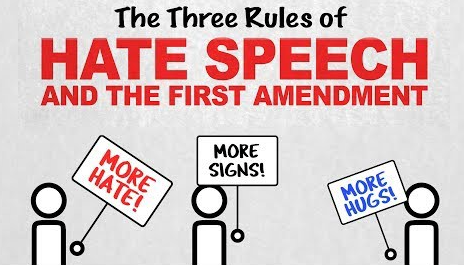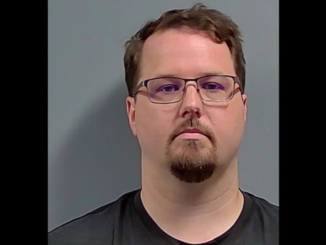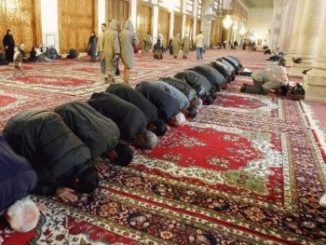
The banner on display goes beyond “derogatory” messages he’s seen displayed on the property in recent years, [a neighbor] said. When free speech is threatening, it shouldn’t be protected by the First Amendment, he said.
“It’s (the property owners) First Amendment right to say some things but there are some things that go beyond a person’s First Amendment rights,” [he] said. “The First Amendment doesn’t protect hate speech.” …
The banner on Spalding’s property makes the area feel less welcoming and unsafe, [another neighbor] said.
“The Groesbeck neighborhood is a really beautiful neighborhood and it’s a great atmosphere for young families,” she said. “I know that they have the right to freedom of religion but that doesn’t mean they have the freedom to perpetuate a state of hate towards a vulnerable community. I wouldn’t blame potential homeowners who look somewhere else.”
Fortunately, government officials seem to know and follow the First Amendment law here:
“While we don’t necessarily agree with the views on the sign, we have to respect the property owner’s First Amendment rights and we have to acknowledge the limits of our ordinance regulations,” [Lansing Township Supervisor Maggie] Sanders said.
Same with another neighbor:
[The homeowner’s] message is “anti-liberation, it’s anti-LGBTQ, anti-neighborhood feeling,” [the neighbor] said, but displaying it on his own property is [his] right.
“I live there, I’m gay and I work in social justice issues and he has every right to put whatever he wants on this sign,” [the neighbor] said. “It’s his property.”
For more on there not being a “hate speech” exception to the First Amendment, see this post, and also this short video:



